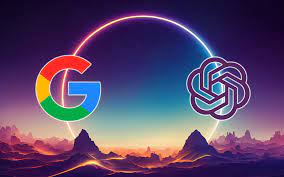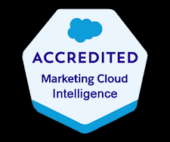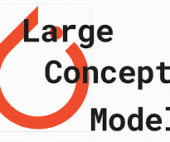Google’s Bard has emerged as a contender in the realm of large language models (LLMs), sparking speculation about its potential to outshine OpenAI’s ChatGPT. This insight explores the validity of this claim and examines the tests and factors that could determine the ultimate victor in this ongoing AI rivalry. Did Google Dethrone ChatGPT?
Google’s Gemini 1.5 Pro is a generational leap in terms of Multimodal Large Language Models, or MLLMs, much like GPT-4 was to LLMs back in March 2023.
Did Google Dethrone ChatGPT?
While initial rumors of Bard’s “dethronement” of ChatGPT surfaced from a single LinkedIn post in February 2024, substantial evidence is required to substantiate such claims. Let’s determine the potential battleground:
The Testing Grounds:
There’s no singular, universally recognized benchmark for evaluating LLMs. Here are some areas where Google and OpenAI may showcase their AI prowess:
Generative Text Quality: Can the LLM generate various creative text formats—such as poems, code, scripts, and emails—while maintaining coherence and factual accuracy? Question Answering: How effectively can the LLM respond to open-ended, challenging, or unconventional questions, drawing on its knowledge base? Following Instructions: Can the LLM adhere to complex instructions and perform tasks requiring multi-step reasoning? Bias Mitigation: Does the LLM demonstrate impartiality in its responses, or does it exhibit traces of prejudice or social stereotypes? Beyond the Tests:
While test results offer insights into LLM capabilities, other factors influence their overall impact:
Accessibility: How easily can the LLM be accessed by the public? Is there a user-friendly interface or developer API? Real-World Applications: How seamlessly can the LLM be integrated into practical applications like chatbots, virtual assistants, or educational tools? Continuous Learning: How adeptly does the LLM adapt and enhance its performance over time, incorporating new data and user feedback? The Current Landscape:
Declaring a definitive winner is challenging. Bard and ChatGPT excel in different domains. Here’s a speculative analysis:
Generative Text Quality: Bard may have a slight advantage, leveraging Google’s extensive dataset. Question Answering: ChatGPT might excel in responding to open-ended queries with creativity, while Bard may prioritize factual accuracy. Following Instructions & Bias Mitigation: Both LLMs are continually refining their capabilities in these areas. The Future of LLMs:
The landscape of LLMs is dynamic, with Google and OpenAI poised to make significant advancements. Anticipated developments include:
Focus on Explainability: Efforts to understand the reasoning behind LLM responses to foster transparency and trust. Bias Mitigation: Strategies to address bias in LLMs for fairer and more inclusive interactions. Specialized LLMs: Development of domain-specific LLMs tailored to fields like medicine or law.
Is Google AI better than ChatGPT?
Gemini offers a better user experience, with more imagery and website links. Gemini Advanced generates better AI images than ChatGPT Plus. Gemini responses were often set out in a more readable format than ChatGPT’s responses. Gemini was better at generating spreadsheet formulas than ChatGPT.
How is Bard better than ChatGPT?
Bard has real-time access to the internet through Google Search, allowing it to incorporate the latest information and news into its responses. Trained on a static dataset not updated since 2021, however, ChatGPT can only access external information through plugins, and this functionality is limited.
Is Google nervous about ChatGPT?
It’s that the technology represents everything Google was afraid artificial intelligence would become. If ChatGPT runs rampant, the search giant fears it could ruin AI adoption for everyone. Since going viral, ChatGPT has demonstrated how generative AI can be user-friendly, practical, and productive.
The narrative of ChatGPT’s dethronement may be premature. Bard and ChatGPT are evolving entities, and the ultimate victor will be determined by their ability to navigate future challenges and opportunities. As these LLMs progress, users stand to benefit from access to increasingly sophisticated and beneficial AI tools.













